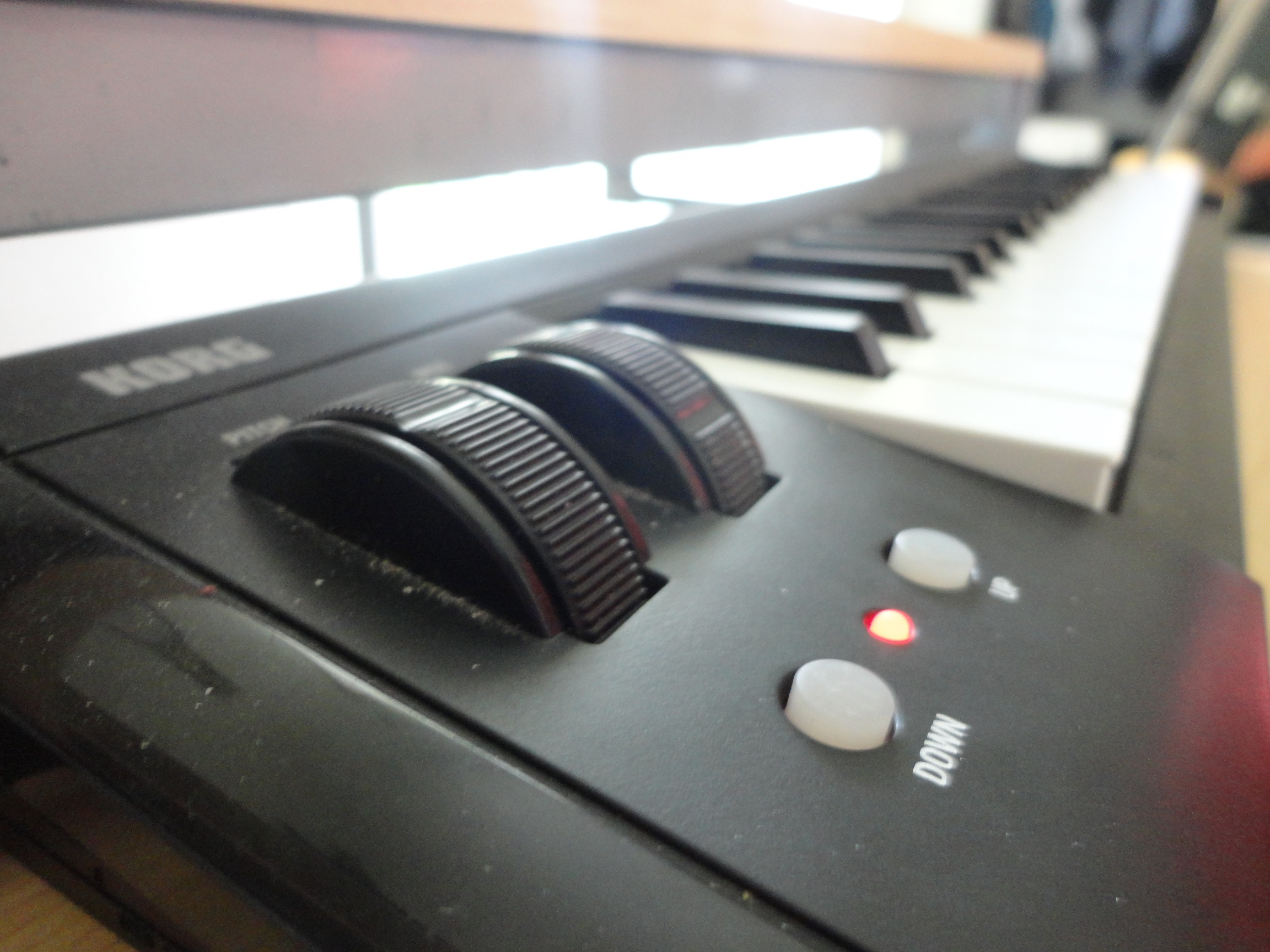-
Posts
6,160 -
Joined
-
Last visited
-
Days Won
53
Content Type
Profiles
Forums
8Tracks
Articles
Events
Blogs
Everything posted by timaeus222
-

OCR02832 - Shadow of the Colossus "Trico Flies"
timaeus222 replied to djpretzel's topic in ReMix Reviews & Comments
This is amazing! =D -
Happy DJ day, Mikestylez.
-
Minor thing, but it should be OC ReMix, not OCRemix.
-

OCR02829 - Mega Man 9 "Mega Blocked"
timaeus222 replied to djpretzel's topic in ReMix Reviews & Comments
Good job. Good chips, and good guitar. I was missing a lil salsa in the drums, but that's okay. -

How has your process evolved?
timaeus222 replied to mickomoo's topic in Music Composition & Production
What can I say? I'm feeling extra philosophical today. -

How has your process evolved?
timaeus222 replied to mickomoo's topic in Music Composition & Production
So then you're saying we should try to learn what we want to learn to the extent that we truly believe we've exhausted whatever it is we're learning. Fair enough. But one thing bothers me. How would you (the producer, not you, Snaps) know when you've exhausted the capacity of knowledge you can acquire from said plugin/topic/object? It's been said before (with regards to Philosophy) that you can't identify that which you don't know without first understanding its essence. Do you just pick a point where you decide "okay, this is good enough, I don't need to know anything more about this to fulfill my goals, even though there might be more out there"? For example, if you've never seen a dinglehopper before and have no idea what it looks like, and I asked you to find one that perfectly fits the description of what one is (assuming that is a singular object type with no other variations), could you go and find one, bring it back to me, and show me that it is indeed a dinglehopper without any doubt? Similarly, if I picked out a plugin from the set that I have, how would I know whether or not I've done all I can with it and maximized its use? There has to be a point when you just know that you've used it to its fullest extent, and that point is the actual capacity---the objective truth. How can you know, to the extent that it matters to you, that you just can't identify any more new and practical applications for your plugin? That's hard, because our experience with plugins/topics/objects is always in development. We're always hungry for the truth. -

Happy Birthday, DaMonz and TheShaggyFreak!
timaeus222 replied to Chimpazilla's topic in General Discussion
Happy birthday! (I'd link ProtoDome's 8-bit Happy Birthday Remix, but I can't find it! ) -

Kontakt 5 Bugging out in FL Studio 11?
timaeus222 replied to ad.mixx's topic in Music Composition & Production
If you have any other background information you can share, that would be great. -
I just noticed this yesterday when I had more than one instance of FluidR3 loaded into FL Studio 11. I started with one instance. Played fine, polyphony was all good, sounded normal. I loaded a second instance, and tried to play something polyphonic. It played monophonically, and if I asdfasdfasdfed on my keyboard, the mess of notes then turned into resonant bitcrush-y left-panned buzzing that just won't stop. The weird thing is, the first instance played fine, even with the second instance loaded. I guess I should say that I had a lot of other stuff loaded at the same time that wasn't soundfonts. However, I haven't had memory issues since I got some more RAM. I'll have to try recreating this situation again in an empty project file later. Anyone get this resolved before? I just want to use a harp, and I'm having to use a sample library harp sometimes (which I actually don't prefer over FluidR3's harp---no kidding!).
-

Kontakt 5 Bugging out in FL Studio 11?
timaeus222 replied to ad.mixx's topic in Music Composition & Production
Well, I distinctly remember having a project file of mine working well when I opened it in FL 10, which I specifically labeled as "extended memory" because of how it supported more than 4GB RAM, but when I upgraded to FL 11, it didn't open because of memory issues, and it gave me all sorts of completely wrong errors (stuff like Fruity Delay 2 being not installed, etc.). I had kept FL 10 installed just in case, and so I just worked in that project file with FL 10 until I figured it out. It took a while, but I opened the same project file in FL 11 using the *other* .exe file, simply called "FL.exe", and it worked. So, yeah, try that! -

Kontakt 5 Bugging out in FL Studio 11?
timaeus222 replied to ad.mixx's topic in Music Composition & Production
You don't have to, but it helps speed up the loading times. I've batch-compressed every library that I had gotten as WAVs into NCWs, and it's essentially halved my loading times. For me there's just a bit of a pause for about... 20~30 seconds, then the samples load within the next 5~10 seconds. Are you using the non-compability mode version? I recall Kristina telling me how the versions were switched or something, when FL 10 was updated to FL 11. EDIT: Yeah, it's the info at the very bottom here. -

Kontakt 5 Bugging out in FL Studio 11?
timaeus222 replied to ad.mixx's topic in Music Composition & Production
I can think of three potential problems: 1) Not enough or not a lot of RAM. What are your specs? 2) Slow processor speed and loading uncompressed samples. What's your processor speed? Are you using WAVs, NCWs, or compressed library files (I think they were NKX or something)? 3) Windows 8 compatibility (maybe) -

wip Sonic 3/Sonic Chaos remix (from SZRC)
timaeus222 replied to wildfire's topic in Post Your Game ReMixes!
The vocals sound a lil choppy, as if you sliced your vocals to line up the transients, and that sounds unnatural to me. There's quite a bit of midrange in the backing instruments that is cluttering the soundscape and obscuring the important frequencies of all the vocals, so it's hard to understand them without trying to compare to the lyrics. Also, there's an unusual atmosphere to the reverb. The vocals sound distant and washy, especially in the backing vocals. The backing vocals sound almost like they were recorded in a tiled bathroom, with some additional chorus effects or something. As a whole, it feels muddy. Even if you can hear certain desirable elements in a song, I know this may sound condescending, but you have to keep the support instruments in mind and mix them to the best of your ability to sound as clear you can manage, as well. I'm not particularly fond of the reverb tone on the vocals, but it's fine. I'd just say we need more clarity in the vocals, some mud needs to be cleared up, and perhaps, the track can have some more progression throughout. The drums sound pretty simply written, even for trance, and some rhythmic variation would help. You could always change the hi hat rhythm, add an open hi hat, add snare rolls, change up the drum samples, etc. -

How has your process evolved?
timaeus222 replied to mickomoo's topic in Music Composition & Production
True, but at least for Argle and I, we both love doing it, and I'd give props to Argle's production if he wanted me to. -

Taking Soundbites from Shows and Movies
timaeus222 replied to Garrett Williamson's topic in Music Composition & Production
My gut says no. I think I recall Japanese copyright to be really strange. http://www.worldipreview.com/news/japan-considers-copyright-law-extension http://en.wikipedia.org/wiki/Copyright_law_of_Japan#Author.27s_rights http://en.wikipedia.org/wiki/Copyright_law_of_Japan#Public_domain -

How has your process evolved?
timaeus222 replied to mickomoo's topic in Music Composition & Production
To be honest, I feel the same way. I love production. -

How has your process evolved?
timaeus222 replied to mickomoo's topic in Music Composition & Production
Personally I feel like if you can find the part of the production process that you are slowest at, and work at it until you can do it as if it were second nature, that'll be a huge hurdle you just eliminated and your workflow speed will increase most because of that improvement. It was EQ in general for me in the past. Now the only thing holding me back with EQ is the extreme low bass and extreme high treble, and I'm already working towards improving that. -

How has your process evolved?
timaeus222 replied to mickomoo's topic in Music Composition & Production
Couldn't tell. On another note, I used to be pretty disorganized in my large (40+ layers) project files, and I separated patterns from automation clips instead of pairing related objects together. These days I try to at least put related objects near each other (but not overlapping each other), if not label the patterns I make, so that I at least know what's associated with what. EX: A bass clarinet and its expression (CC11) automation clip on adjacent layers. I sometimes also associate one automation clip with many similar automations so I can have one automation clip labeled to automate more than one knob. -

How has your process evolved?
timaeus222 replied to mickomoo's topic in Music Composition & Production
Yeaaaaah, that can happen too; keeping backups: great idea! -
Motifs. Yes. Easy example: Beethoven's 5th Symphony (more of a leitmotif, but a similar concept of using motifs for a sense of familiarity).

